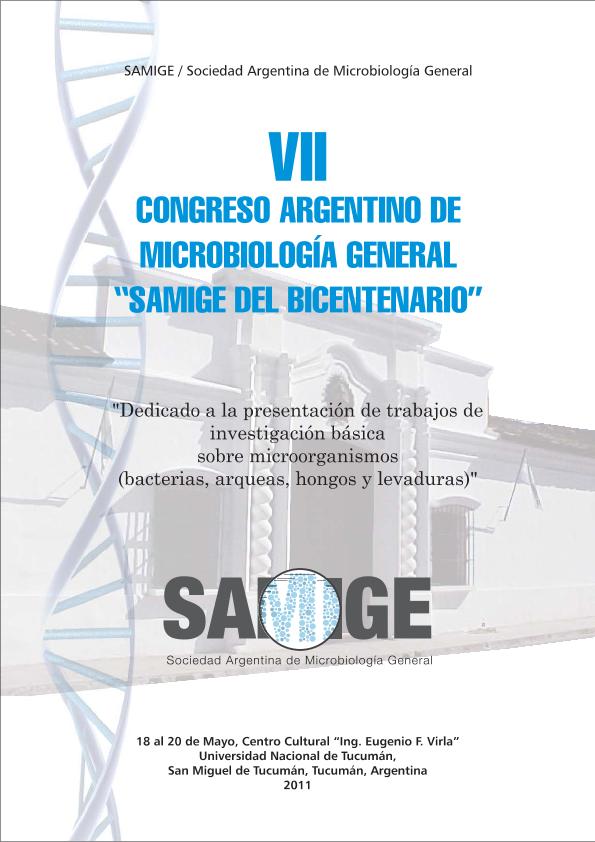Mostrar el registro sencillo del ítem
dc.contributor.author
Muruaga, María Laura

dc.contributor.author
Perotti, Nora Ines

dc.contributor.author
Abate, Carlos Mauricio

dc.date.available
2023-03-28T12:55:48Z
dc.date.issued
2011
dc.identifier.citation
Comparative study of flocculent and non-flocculent yeast strains for ethanol production; VII Congreso Nacional de Microbiologia General; San Miguel de Tucumán; Argentina; 2011; 1-2
dc.identifier.uri
http://hdl.handle.net/11336/191809
dc.description.abstract
The gradual depletion of crude oil and the biological environmental deterioration resulted from both the fuels over consumption and petroleum-derived transportation have gained attention again, making urgent to develop renewable and environmentally friendly alternatives. Ethanol is an important industrial chemical with emerging potential as a biofuel to replace vanishing fossil fuels, whose utilization could improve energy security and decrease urban air pollution. The entry into force of Law 26,093 of biofuels in Argentina from 2010 will mean an opportunity for the sugar sector to expand ethanol production in order to supply 5% of this alcohol to all the naphthas. Our work proposes a microbiological approach to use fermentative microorganisms with high tolerance to alcohol in order to increase the currently obtained ethanol concentration (11%) by the alcoholic fermentation of molasses and compare the results when using flocculent or nonflocculent yeast strains for fermentation. To take up this, isolation and identification of ethanol hyper-producing yeasts strains from sugar cane molasses was carried out. Samples of molasses were taken from different mills of Tucuman and used to inoculate YPS (w/sucrose), YPD (w/dextrose) and molasses media with antibiotics. YPS medium with 50g/L sucrose was used for the propagation of microorganisms by incubating in a thermostatically controlled bath at 30ºC with agitation. Fermentations of selected isolates were performed in duplicate in flasks with 200 ml of YPS medium with 250 g/L sucrose and incubated at 30ºC without aeration. Every 8 h, Total Reducing Sugars (TRS), Direct Reducing Sugars (DRS), biomass dry weight and ethanol concentration were determined. Three yeast isolates showing high ethanol production and named as A2, A10 and A11, which produced 11.74, 12.81 and 13.20% ethanol, respectively, were selected. A10 and A11 were flocculent yeast strains and A2 a non-flocculent yeast strain. These isolates were identified by molecular taxonomy tools according to the sequence analysis of their rDNA intergenic spacers, which allowed assigning identities of 99 and 100% to that of Saccharomyces cerevisiae. Fermentations were carried out with a massive inoculum, which allowed to reduce the time of fermentation, and in the case of the A2 strain an ethanol concentration of 11.95% could be reached after 10 h of incubation, a higher value than the one currently achieved in industry, which is 10%. It was determined that the strain A2 showed an homogeneous growth in liquid media, a feature that is compatible with the technology used in industry. For this reason, the A2 strain could be used in ethanol industrial production without the need for technology investments that would be indispensable for the recycling of flocculent strains. However, the A10 and A11 flocculent yeasts showed a very important potential for ethanol production, and these promising results justify further studies leading to an optimization in the production of bioethanol.
dc.format
application/pdf
dc.language.iso
eng
dc.publisher
Sociedad Argentina de Microbiología General
dc.rights
info:eu-repo/semantics/openAccess
dc.rights.uri
https://creativecommons.org/licenses/by-nc-sa/2.5/ar/
dc.subject
Ethanol
dc.subject
Yeast
dc.subject.classification
Bioproductos, Biomateriales, Bioplásticos, Biocombustibles, Bioderivados, etc.

dc.subject.classification
Biotecnología Industrial

dc.subject.classification
INGENIERÍAS Y TECNOLOGÍAS

dc.title
Comparative study of flocculent and non-flocculent yeast strains for ethanol production
dc.type
info:eu-repo/semantics/publishedVersion
dc.type
info:eu-repo/semantics/conferenceObject
dc.type
info:ar-repo/semantics/documento de conferencia
dc.date.updated
2023-03-23T15:49:04Z
dc.journal.pagination
1-2
dc.journal.pais
Argentina

dc.journal.ciudad
San Miguel de Tucumán
dc.description.fil
Fil: Muruaga, María Laura. Consejo Nacional de Investigaciones Científicas y Técnicas. Centro Científico Tecnológico Conicet - Tucumán. Planta Piloto de Procesos Industriales Microbiológicos; Argentina
dc.description.fil
Fil: Perotti, Nora Ines. Consejo Nacional de Investigaciones Científicas y Técnicas. Centro Científico Tecnológico Conicet - Tucumán. Planta Piloto de Procesos Industriales Microbiológicos; Argentina
dc.description.fil
Fil: Abate, Carlos Mauricio. Consejo Nacional de Investigaciones Científicas y Técnicas. Centro Científico Tecnológico Conicet - Tucumán. Planta Piloto de Procesos Industriales Microbiológicos; Argentina
dc.relation.alternativeid
info:eu-repo/semantics/altIdentifier/url/https://samige.org.ar/wp-content/uploads/2022/10/Libro-SAMIGE-2011.pdf
dc.conicet.rol
Autor

dc.conicet.rol
Autor

dc.conicet.rol
Autor

dc.coverage
Nacional
dc.type.subtype
Congreso
dc.description.nombreEvento
VII Congreso Nacional de Microbiologia General
dc.date.evento
2011-05-18
dc.description.ciudadEvento
San Miguel de Tucumán
dc.description.paisEvento
Argentina

dc.type.publicacion
Book
dc.description.institucionOrganizadora
Sociedad Argentina de Microbiología General
dc.source.libro
VII Congreso Nacional de Microbiologia General
dc.date.eventoHasta
2011-03-20
dc.type
Congreso
Archivos asociados
